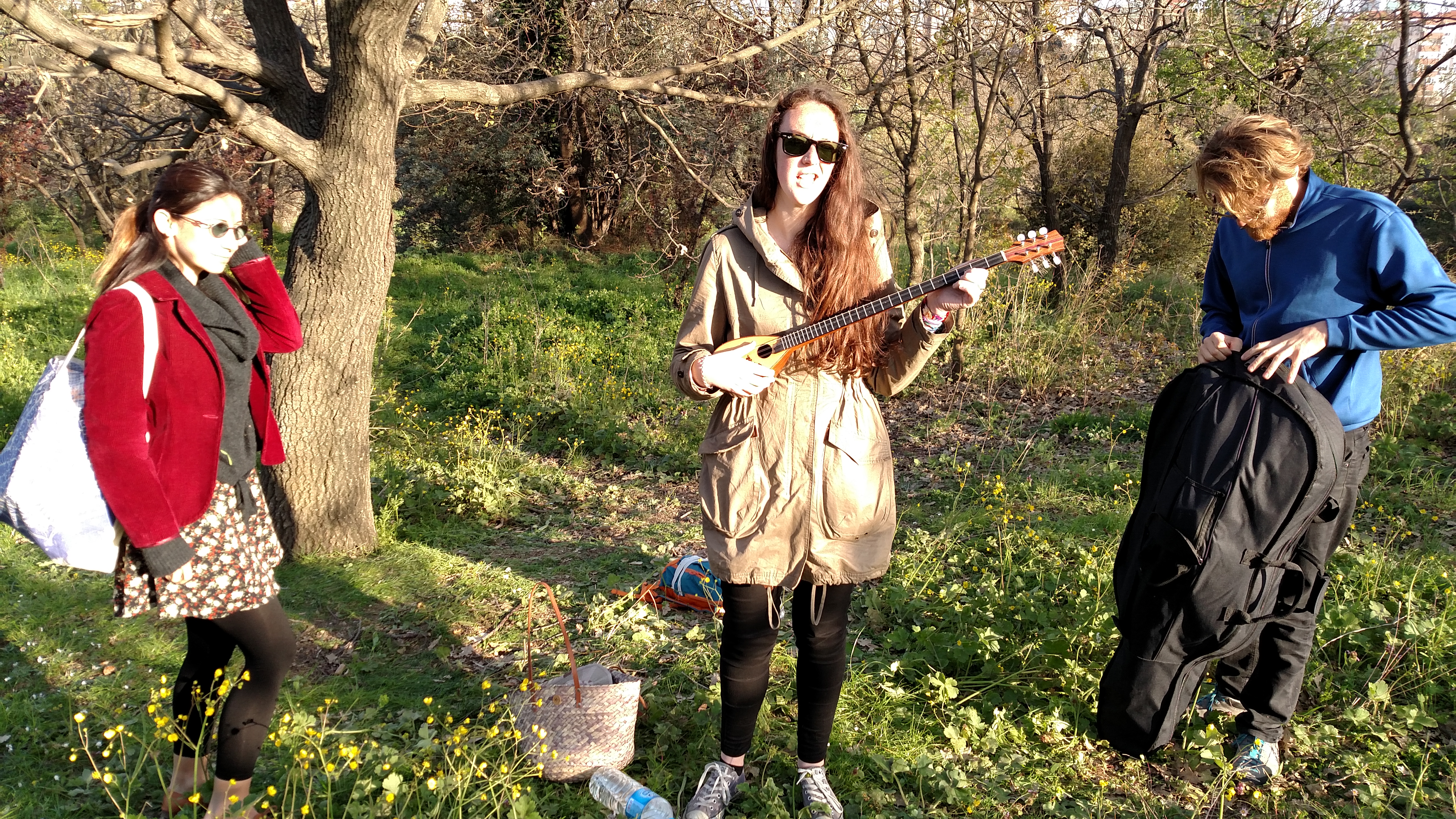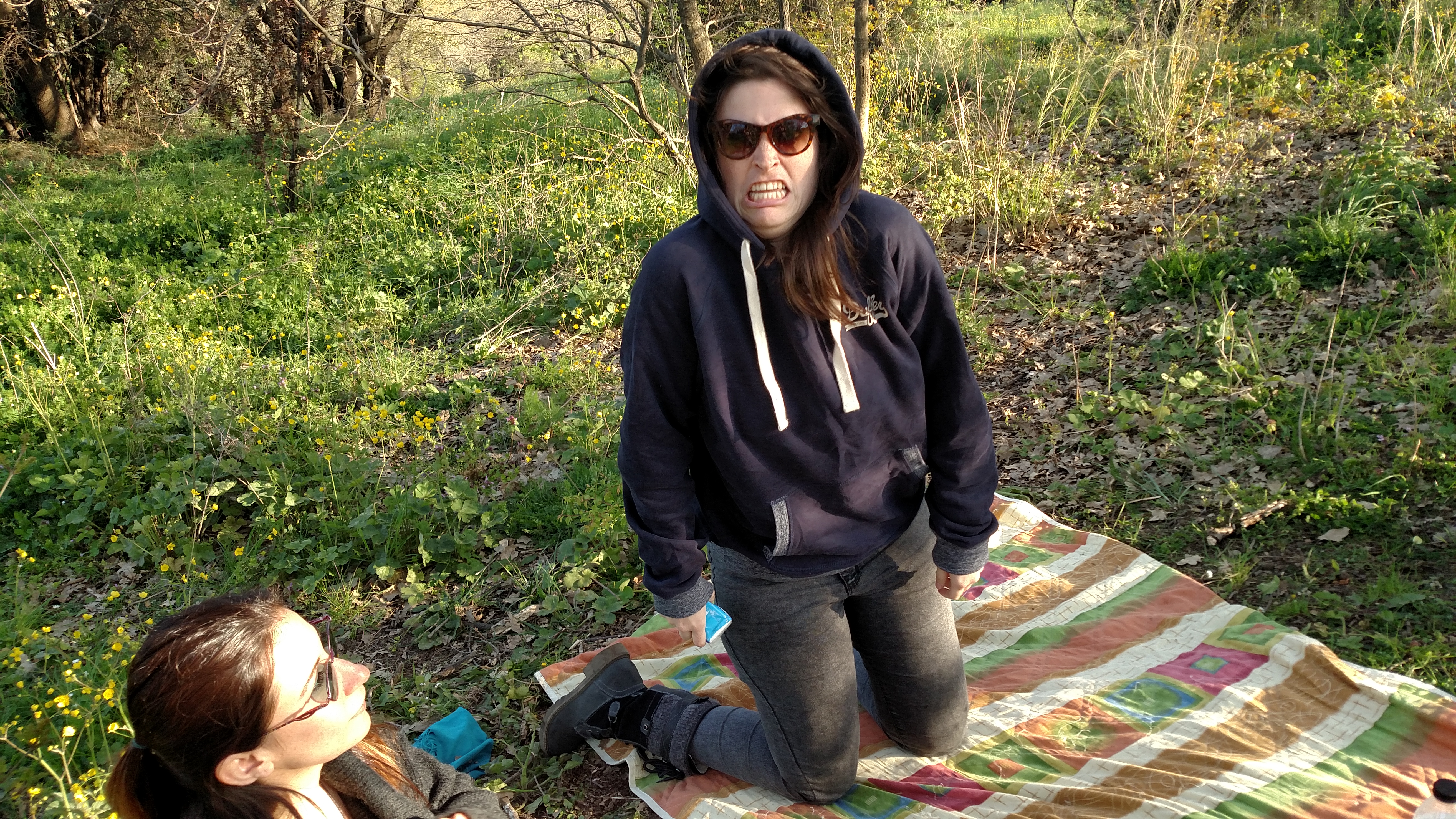Heyo, I have not been blogging for awhile so here is a treat for the 20 people who may still read this. Recently I entered the NYC Midnight Short Story competition. About 5,000 people entered this year and I was given a random prompt: it had to be in the genre of fantasy, it had to include a hostage as a character, and it had to be on the subject of discipline. The most obvious choice should have been “elf sex dungeon” but because Trump was getting impeached and wanted to distract everyone he murdered a dude with a rocket, the first thing that popped into my head was “make everything a thinly-veiled allegory for the Iranian Revolution”. Now you all get to enjoy it. It was a strange exercise and I’m glad I did it. I’ll know if I make it to the next round of the contest in a few months. (I’m really hoping that wordpress puts just the worst ads in between the most dramatic moments of the story.) It is titled “The sky of Tahtikal”. Enjoy!
*****
When the revolution came, they burned the sky red. The diplomatic staff at the Carolingian Embassy had no idea how it was done, no known spelltext talked about weather control of that magnitude, or that violence. It was clearly tactical. The sandstone dwellings where the People’s Army had lived their bitter lives were havens from the storm, but the foreign embassies strained against their guy ropes tethering them to the ground. The Terraspana’s headwind balloon ruptured, and only a few survived when the airship crashed into the floodplains below. The quicker-thinking diplomats and attaches cut their ropes, and were able to escape, captains making desperate breaks for the border. The Sultan in neighboring Ozkarabak, doddery as he was, would protect the influx of foreign dignitaries from the chaos unfolding on his southern border.
Aberyst had been coming up from a routine check in the mines and was arrested without preamble. His aides – gone. His wand – confiscated. He tried to palm a fragment of Calathite, a ghost-stone, in a mad hope, but they found that too, cuffed him on the head so hard it plunged him into unconsciousness. When he woke up, he gave a cry and found his mouth to be full of rag, and he thought himself sightless – but of course it was a blindfold, crudely tied. It slipped off halfway through the journey when the autocart hit a bump. Daylight leaked in behind the canvas tarpaulin, and several other blindfolded foreigners sat next to him. But the daylight was the wrong color. The canvas flapped open, and in a brief flash, Aberyst could see a long pale road stretching into the desert behind them. And a sky, bloodied, cloudless, scorched.
A Tahti revolutionary sitting across on the other bench from him pulled the canvas flap closed, and spotted that the blindfold had slipped. He saw the fear and confusion in the bureaucrat-mage’s eyes. The Tahti smiled a savage grin and got up to retie it with his long brown fingers.
“Do not be afraid,” the Tahti said, in accented Caro. His voice was a thorn. “Be happy. The People’s Army has won freedom at last.”
They brought him to a basement in a village somewhere in the provinces. He could tell by the accents, the smell of lavanta in the air. He had a small window at the ceiling opening to the red sky. Aberyst felt fear and revulsion looking at that sky, but knew it was a masterstroke – no airships could fly through a sky like that. The Caro Parliament would either have vote for a land invasion, or worse, negotiate with some self-elected warlord. And in the meantime, this revolution, if it truly was a revolution, could proceed without involvement from foreign powers. Nobody was coming to save him. The other hostages had been spread out, no two in the same spot.
He went through the Disciplines to calm his mind. First the Grammarium, the Arcanum Dialectic, then the Syllabary, tracing all of the four hundred and seventy six of the Syllables in the shallow dirt of his basement cell. He practiced as he had when he was a child in the academy, and it did absolutely nothing to calm his anxiety. He was sitting on the floor, chained to the wall. A captive. But he wasn’t thinking about the gruesome stories of the People’s Army, and what they did with captives, it was the limits of his magic that made his mind strain. It was impossible, what they had done. Impossible. He’d seen village practitioners back in rural Carolingia push a few glistening shards of Calathite together on a shaggy mountaintop and beg the gods for rain, but anything larger…? Turning the sky to perpetual fire? His mind endlessly digested the facts.
He couldn’t stop himself from bickering with his captors at mealtimes.
“You must know that the Carolingian government will make an example of you,” he said, addressing him in fluent Tahtikal. The guard – the one from the autocart – gently set a plate of lentils in front of him. Aberyst from the floor pulled up his sleeve, showed him his diplomat’s tattoo. “You know who I am.”
The soldier’s response was even-toned. “Yes. You are a thief.”
“A thief!” The audacity of him. Aberyst knew there was no stronger insult for the hospitable Tahtikal, and had never heard the oath deployed at him in all his years of diplomacy. He puffed himself up. “We came to this pissoir of a country, sitting as it was on the greatest wealth of magic in the world, and gave you the knowledge to use it. We trained you. We helped you. Tahti work with all the foreigners.”
He shrugged. “They are thieves, just as you are. They’ve built the master in their minds. You are all thieves.”
“I’m a wizard of the Sixth Diplomatic Council of the Carolingian Mission to the most ungrateful country on earth. You’re a peasant with a rifle and a grudge.”
“Look at you! So angry, so angry.” The Tahti plopped down in a chair, agog. “A master of the Disciplines, yet he can’t stop himself from yelling at a peasant like me.”
Aberyst felt a rush of shame in his cheeks. “Listen, who’s in charge here?”
“No one is in charge. I’m in charge, you’re in charge.” He was mocking Aberyst.
“Someone leads the People’s Army. Someone leads your little cell. Don’t be absurd.”
“Well, I suppose that’s the teacher,” he said, and stretched out on the chair, folding his long fingers behind his head, insouciant. “And we owe obedience to no one but the teacher, and the teacher says we owe obedience to no one but ourselves. That’s what you get when you’re a free man, no?”
“That’s absurd,” Aberyst said again. The Tahti laughed at him, stood up, and took the plate away.
“Who burned the sky?!” Aberyst said as they shut the door, clanged the bolt into place. Into the dirt, Aberyst traced the Syllable for ‘open’, and hated his own impotence.
***
They moved him in the middle of the night by foot to a neighboring village. He was blindfolded again, of course, and he counted his steps to keep his patience. This new safehouse had no spare room, so they all slept on the floor in opposite corners. A week passed. Terror gave way to boredom His two captors played cards for hours, jabbered in their local dialect. Aberyst couldn’t make out what they were saying most of the time. At mealtimes, the Tahti ate their lentils with their hands from sheets of newsprint. Aberyst had found a broken fork and enamelled bowl, and his captors complained he was using too much potable water to wash them after each use.
“Tell me about this teacher of yours.” Aberyst was eating, the Tahti were playing at cards.
“We are his students, and we follow his path to freedom.”
“What sort of freedom is it to burn the sky and live in darkness?”
“Ah,” said the stout one, winking. “Now you ask more interesting questions.”
“I can’t understand how you did it. Calathite is not that powerful. No spell could do that.”
“And no spell did,” the stout Tahti said.
“What we desire can often be the best course of action,” the tall one said.
“But how can you work magic without the Disciplines? How did burn the sky? Be serious, no parables, please.”
“Let me ask you, diplomat, what are these ghost-stones good for?”
His diplomacy took over. “Industry, of course. Indoor heating for every home, autocarts and airships produced with little human effort, easy travel and convenient access to foods out of season. Opportunity, advancement, economy. Your nation got all these wonderful things through us, our presence here.”
The stouter one spoke: “Do you know why they’re called ghost-stones in our tongue?”
“No,” Aberyst admitted.
He fixed Aberyst with a stare and grinned. “It is because when we touch them, we can hear the ghosts of our ancestors screaming for freedom inside them. They’re mad from desire. Everyone longing that they ever had, every regret, every joy and every grief, transmuted to rock, over generations.”
“You’ve stolen our ghosts, Carolingian,” the tall one said. Their smiles were unwavering, eerie. Aberyst’s diplomatic training supplied him with nothing. He went with disdain.
“Poppycock.”
The tall one threw down a winning hand, and the other swore and collected the deck for another deal. “I cannot say whether we shall win this fight, Foreigner.”
“Nor can I,” said Aberyst, scraping the last of the greasy red slurry into his mouth. “But I’m sure an exchange will be worked out soon. And you’ll get whatever sort of freedom it is you’re looking for.”
***
The door opened. A new solider stood in the frame, his face a rictus of anxiety. “They have said they will not negotiate. They’re sending soldiers. Martyrs,” he said. The word charged the air with electricity. A death sentence. The Martyrs did not leave survivors. Not even captive wizards of the diplomatic council. The Parliament had voted to invade.
“That can’t be right,” Aberyst said. “That can’t be right.”
“He’ll need to be moved.”
“They can’t do this to me,” he said.
“No?” his Tahti guard stood up. “To us, it is normal. In your newspapers, we are the enemy, we have already tortured you, we have done the worst, we are less than human.”
“Why could you not negotiate with them? Why!” Aberyst demanded. “Why could you not choose to make peace?!”
“They refused,” the tall Tahti said, simply. “They wanted control more than they wanted our mines.” All three slung their rifles over their shoulders and began throwing supplies into their rucksacks.
He realized. “They’re afraid of you,” Aberyst said.
They put on the blindfold, but they did not gag his mouth. They gave him instructions. “Crossing the pavement now,” or “there is a step,” or “now we are going down a ladder, friend”. They kept up a busy pace on foot for an hour or two, and then stopped.
“They said they’d be an autocart here.” one said.
“So where is it?” The guards bickered. They elected to wait awhile in a tense silence, until a distant explosion pierced the air.
“That’s them,” Aberyst said, and felt his heart thudding in his chest. “The Martyrs. We’re not going to outrun them, and we’re not going to lose them. We’re done for.” In the darkness of his blindfold his imagination conjured up the horrors from his training – the Disciples gone mad from study, the prolonged exposure to untreated Calathite altering musculature, warping mind and teeth and rattling bloodshot eyes—
He made his decision. “Take off my blindfold, let me help,” said Aberyst. “Find me vein of Calathite and break off a shard. Your ghost-stone.” There was a silence. “If I run to them, they’ll kill me too. Give me a ghost-stone, I can carve a door.”
“You will flee.”
“The Discipline does not allow me to lie in my magic-telling. A spell is not a lie, it’s the language of truth. If I say I will not run, then my magic will not permit me to.”
“Fine,” they said. The Tahti took off Aberyst’s blindfold. The shock of the bloodied sky hadn’t worn off. They stood in a concrete shelter by the side of a long road, stretching both sides through a flat yellow plain. A ridge rose up behind them, and even against the red sky, he could see the glow of a village on fire behind it.
The other two guards ran off into the plains, looking for a shallow cave where they might find a vein. The tall Tahti and Aberyst shared the guard’s last cigarillo, the foreigner taking it in his bound hands, and bringing both to his face to inhale.
“What is your name?” Aberyst asked.
“Now you ask.”
“Tell me.”
“Samareth, and I follow the teacher.”
“I am Aberyst. I follow my Embassy Council and keep to the Disciplines.”
“We know who you are,” Samareth said, smiling. Another explosion sounded behind the ridge. Aberyst flinched, but held his composure. Samareth was trembling.
“I was due for a posting in Terraspana,” Aberyst said, and let himself go dewy-eyed at the thought. “Chilled wine. Soft guitar music in the terraces. An earned vacation, really.”
Samareth nodded. “We never got to travel much. The teacher would love it there.”
“But who is this teacher?” Aberyst said, pulling on the cigarillo. “They must be somewhere safe. Your leader. We can go there. You must have him stashed somewhere.”
Samareth looked uneasy.
“If you don’t know, tell me the teacher’s name and I can find him.” Aberyst was already putting the sequence of Syllables together in his mind.
“Foreigner,” Samareth said, gently, “to follow the teacher, you must follow your own heart. And only that. The teacher is all of us.” Aberyst came up short. “Our desires already affect the world. We learned to tap our living desires for power. That’s how we burned the sky. No ghost-stones.”
“Without the Disciplines…” Aberyst said. “It would tear you apart. We’re taught to control our emotions for just that reason.”
Samareth nodded solemnly. “The People’s Army wanted to be safe from your airships. Thirty men and women lost their lives to ask this from the teacher. And now,” and he pointed up.
“What…what sort of magic is this?” he said.
“You have your disciplines. We have our freedom. It has a price.”
Aberyst felt drained, like the sense had gone out of the world. The other two guards returned, faces drawn. One was bleeding from his palm. The other held up a blue fragment, its surface flickering with power.
“I do not want to die today, foreigner,” said the stout guard. “I want to live.”
His diplomatic training took over, though he felt numb. He spoke automatically.
“I know of a Carolingian Embassy holding in the city of Thanalasht. I do not know what we will find there, nor whom. Be sensible and be ready for anything. Now cut my bonds,” he said, and they did so. They put the ghost-stone on his palm.
“I have never tried to do this without a wand before,” he said, but they could not do magic, and did not know what it was to wield the Disciplines. He breathed deeply, silencing the rattling fear of his mind. Now that the ghost-stone was in his palm he felt a genuine calm radiate from his center. And so he traced the Syllables he needed – Open, Walk, Find, Escape, please.
“On my mark, step into the black,” he said, voice coming from the ether, and they vanished through the air.
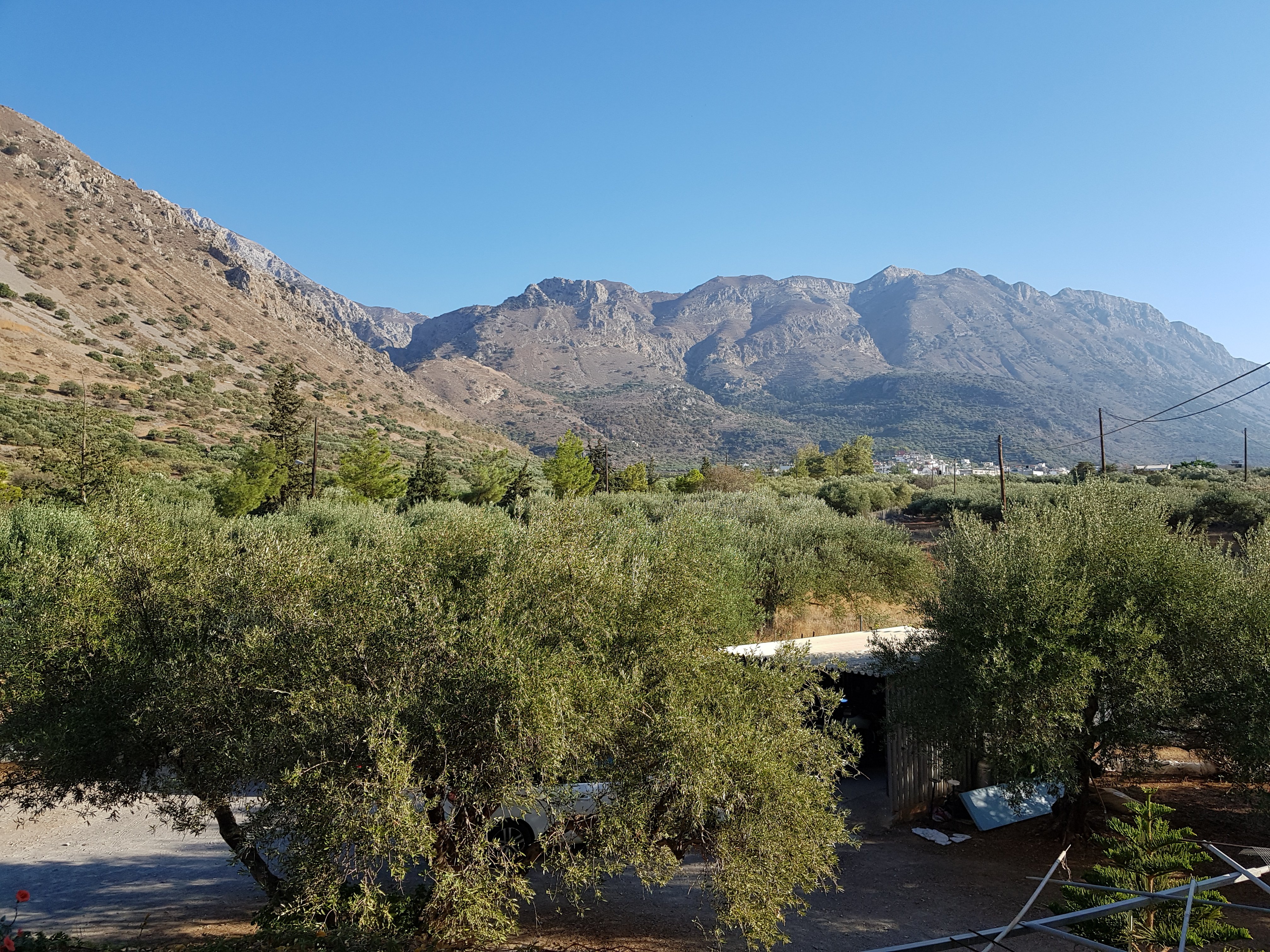
















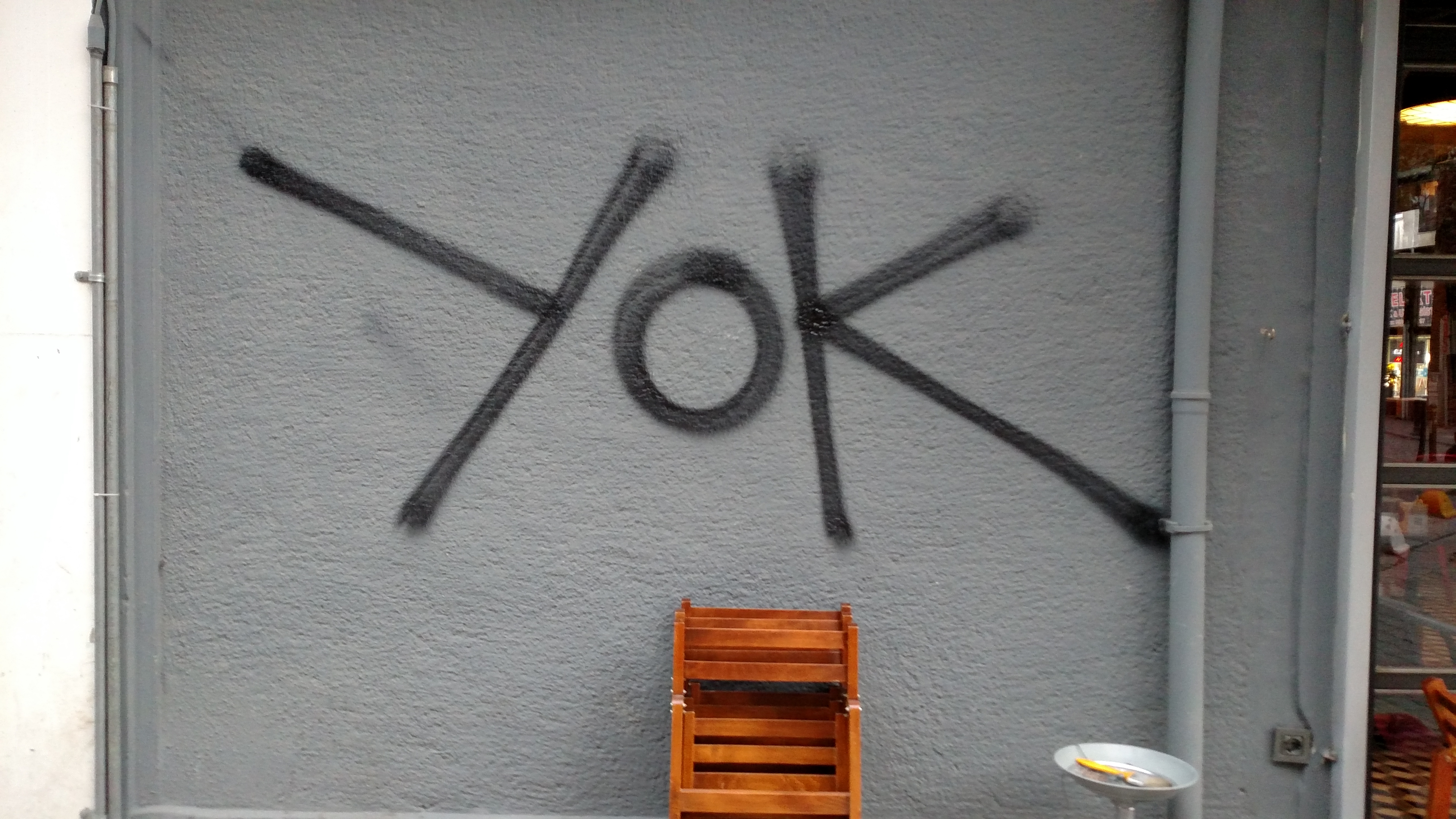 When I was in the late single-digits—sometime during third grade—I developed an intense fear of choking. We had brought home some excellent sandwiches from Carrs’ deli and I was really excited to eat, because at that point I loved plain turkey with shredded lettuce and mayo and black pepper on white or wheat bread, and Carrs’ deli made excellent turkey with shredded lettuce and mayo with black pepper on white or wheat bread. And I remember taking a bite and just not knowing what to do. Where does it go? What do I do with it? Where do I put my tongue, how do I push the food back? What if I do it wrong, and I choke? Was I choking? How could I tell I was choking?
When I was in the late single-digits—sometime during third grade—I developed an intense fear of choking. We had brought home some excellent sandwiches from Carrs’ deli and I was really excited to eat, because at that point I loved plain turkey with shredded lettuce and mayo and black pepper on white or wheat bread, and Carrs’ deli made excellent turkey with shredded lettuce and mayo with black pepper on white or wheat bread. And I remember taking a bite and just not knowing what to do. Where does it go? What do I do with it? Where do I put my tongue, how do I push the food back? What if I do it wrong, and I choke? Was I choking? How could I tell I was choking?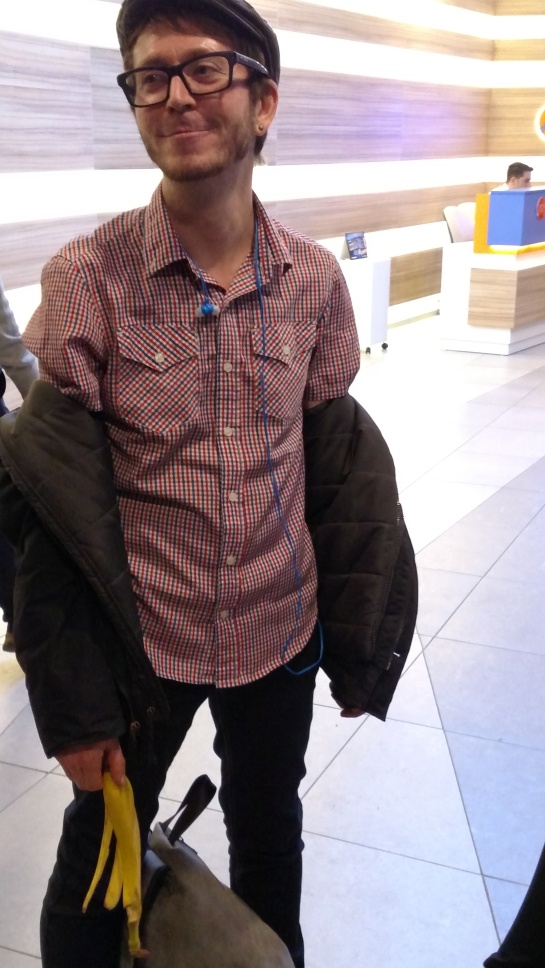
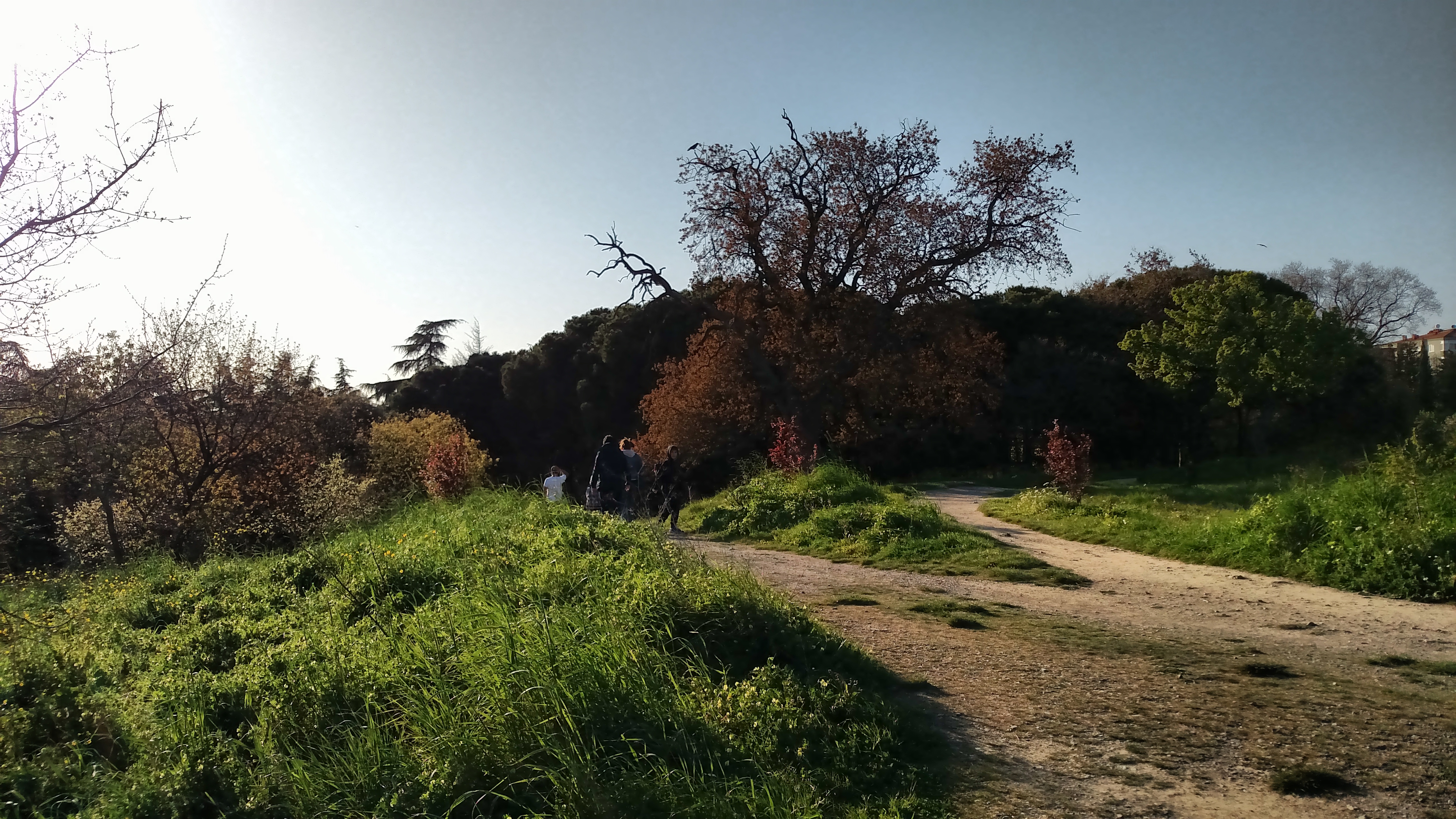 Last Sunday we woke up and I had that Hozier song that’s in 5/4 stuck in my head. Jari was downstairs doing collage of course and I made the coffee, and I polled them for what the song was called. “
Last Sunday we woke up and I had that Hozier song that’s in 5/4 stuck in my head. Jari was downstairs doing collage of course and I made the coffee, and I polled them for what the song was called. “